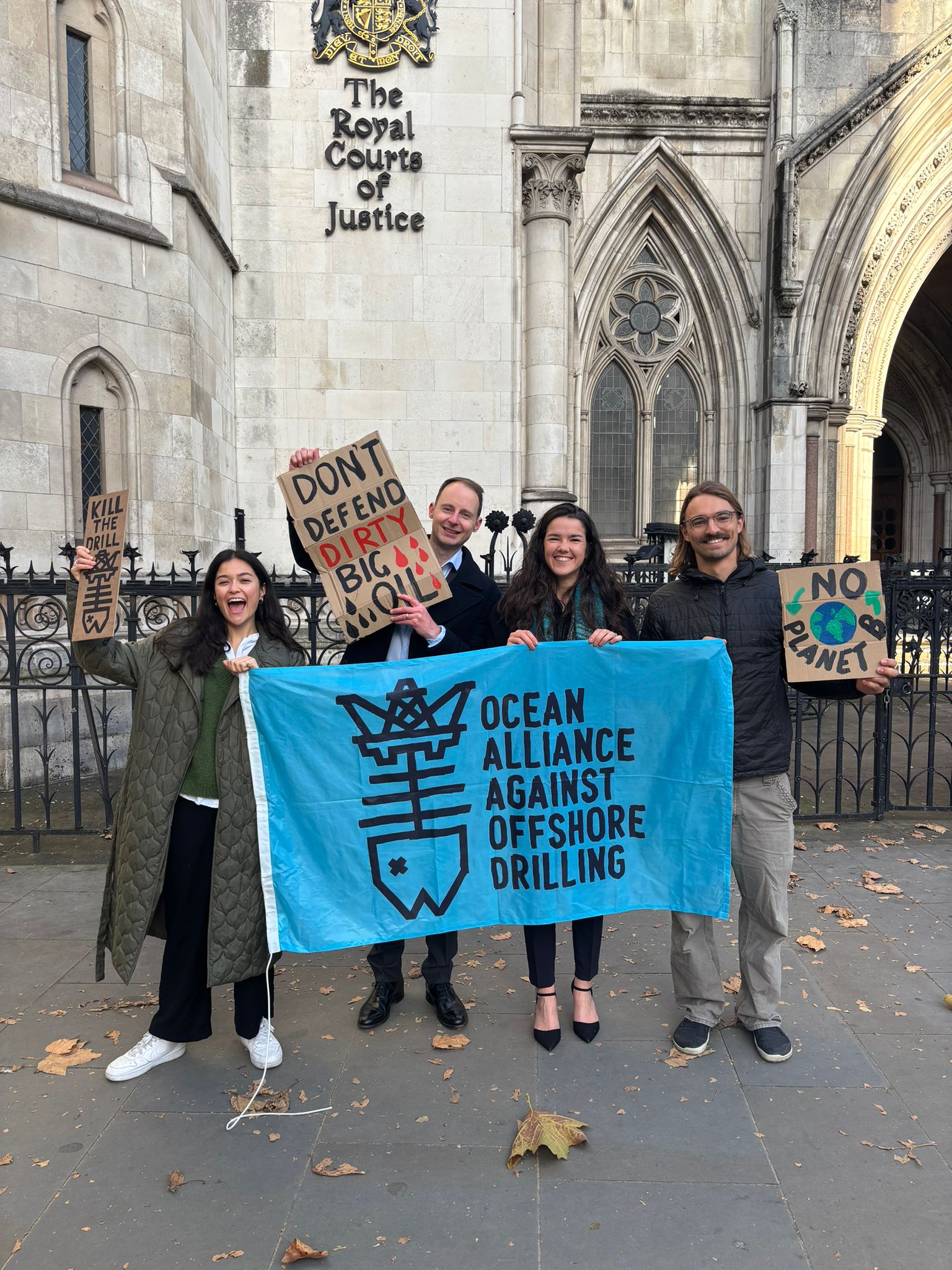Oceana given permission to challenge oil & gas licences in High Court
Press Release Date: November 12, 2024
Location:
Contact:
Daisy Brickhill | email: dbrickhill@oceana.org

Oceana UK has been granted permission for a judicial review challenge to the government’s decision to award fossil fuel exploration licences in UK waters to be heard in the High Court.
Its invitation to Energy Secretary Ed Miliband to drop the case soon after Labour’s election victory in the summer was not taken up, so the charity’s lawyers are preparing for the court hearing.
The charity, represented by law firm Leigh Day, will argue that 31 licences were unlawfully granted in May 2024, ignoring advice from expert bodies warning of the severe threat to marine life from accidental oil spills.
Between October 2023 to May 2024, a total of 82 licences for exploratory oil and gas drilling were issued by the North Sea Transition Authority (NSTA), which is managed by the Secretary of State for Energy and Net Zero.
The licences cover 226 areas (blocks) in UK waters, a third of which overlap with Marine Protected Areas (MPAs) – established to protect habitats and species essential for ocean health.
The decision to award the licences was based on ‘Appropriate Assessments’ made by the Offshore Petroleum Regulator for Environment and Decommissioning (OPRED), which had initially been published in July 2023.
As part of the consultation on these assessments, the Joint Nature Conservation Committee (JNCC) and Natural England responded with a warning about the effect from the drilling sites on MPAs.
The JNCC and Natural England advised that they could not conclude that the drilling would have no adverse effect on the designated sites. The two bodies also said that allowing the operation to go ahead in MPAs would make it impossible for the government to achieve marine protection targets.
They pointed out that many of the designated sites for drilling had already been negatively affected by previous and existing infrastructure, and that further development would risk failing to hit marine targets such as achieving ‘good’ environmental status in all seas by 2042.
Despite the JNCC and Natural England highlighting these issues, OPRED published its final assessments in May 2024, suggesting that the final tranche of 31 licences – which Oceana UK is challenging – would have no adverse effect on MPAs.
Having started the judicial review process in June 2024, Oceana UK wrote a letter, along with members of Ocean Alliance Against Offshore Drilling, to the new Secretary of State for Energy and Net Zero, Ed Miliband in August 2024 calling on the government to concede the case.
However, the government will be continuing its defence of the decision to award the licences, which will now face a judicial review hearing in the High Court in early 2025 after permission was given for the claim on several grounds.
Hugo Tagholm, Executive Director of Oceana UK, said:
“Today in London, Oceana stood before a judge calling for the chance to defend UK seas and stop exploration licences for yet more dirty oil and gas. In Edinburgh, Uplift and Greenpeace were also in court, making the case against the climate-wrecking Rosebank and Jackdaw oil fields. Today, Oceana won the right to proceed. To fight against licences that were granted unlawfully, we believe, by ignoring expert advice and failing to account for the disastrous impacts of oil spills and the climate crisis on our ocean. Together with allies around the world, we are showing that time is up for Big Oil.”
Leigh Day environment solicitor Rowan Smith, working with Carol Day, said:
“Our client has been frustrated not only by the lack of consideration given to expert bodies advising against the drilling, but also by the government’s continued defence of the decision to award the licences. However, we are pleased that the courts have now allowed this claim to progress, validating the arguments we have put forward on behalf of Oceana UK. They argue that the decision ignores expert advice, condemning the plans as harmful for marine habitats, and fails to consider the knock-on climate change effect. We now look forward to arguing this claim on behalf of our client in the High Court.”
The grounds of the claim argue that the then Secretary of State:
- Failed to consider the impact of oil and gas industry accidents (including oil spills and discharges) on MPAs and their conservation features.
- Failed to consider the ongoing impact of the climate crisis on the marine environments set to be impacted by these licences, and failed to consider the full climate impact of the licensed activity, including scope 3 emissions (indirect emissions, such as from the use of the extracted oil and gas).
- Failed adequately to assess the cumulative impacts of the licensed activity on the relevant sites.
- Failed to pay due regard to the advice of the JNCC and Natural England in relation to the matters raised by several of the grounds above.
Read Oceana’s report on the pollution and damage caused by oil and gas developments in the North Sea:
